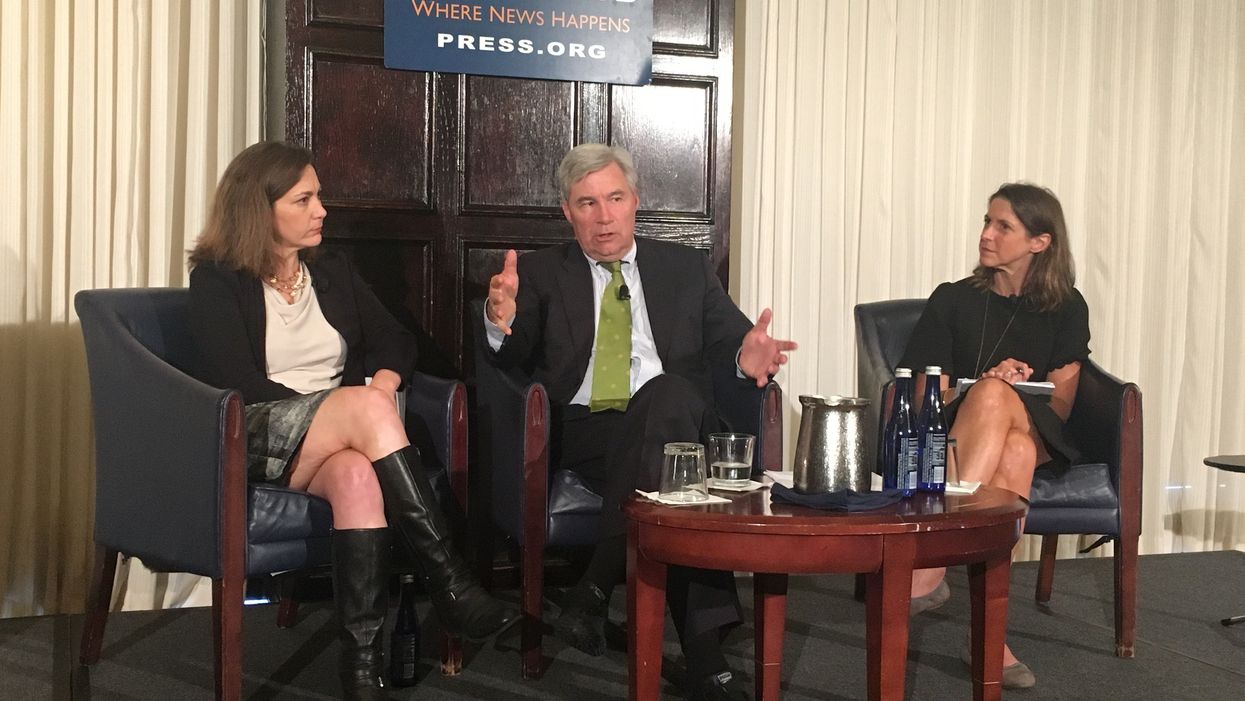A main marketing line for democracy reform advocates is that fixing the political system is a predicate to tackling all the other pressing problems of the day. And in Congress, a prominent acolyte of this idea is Sheldon Whitehouse, the Senate's most persistent advocate for combating climate change, who has long argued his cause will never gain traction while unlimited "dark money" permeates the campaign finance system.
The Rhode Island Democrat was making his case again this week, putting together a meeting of advocates for reducing money's role in politics and advocates of reducing carbon's role in the economy.
Wednesday's gathering in downtown Washington, with members of End Citizens United and the League of Conservation Voters, came as a growing number of Democratic presidential candidates are highlighting a link between their climate change proposals and their proposals for regulating campaign finance and lobbying.
The collective argument is that so long as the oil, gas and coal industries remain such mainstays of the unregulated and secretive campaign money universe that legislation to slow global warming doesn't stand a chance.
Since the Supreme Court's 2010 Citizens United ruling unleased the new world of "dark money," energy companies have spent more than $668 million on campaigns, three-quarters of it to promote Republicans, according to the Center for Responsive Politics.
"We are in a battle for our country's soul against malefactors of great wealth who have been allowed to hide the wicked workings of that wealth behind masks," Whitehouse said. "The fossil fuel industry's dark money has polluted our politics as badly as its carbon emissions have polluted our atmosphere and oceans."
Before the landmark Citizens United case – which said the First Amendment meant political spending by corporations and labor unions could not be limited – there was bipartisan movement on climate change policy, Whitehouse said, but since then that movement has lacked Republican support due to the influence of dark money from the fossil fuel industry.
Whitehouse has introduced legislation that would require organizations spending money in federal elections — including super PACs and certain nonprofit groups — to promptly disclose donors of more than $10,000 in an election cycle. He's proposed a similar bill in each of the three previous Congresses but it's gone nowhere. This year, however, similar language is in the comprehensive bill, known as HR 1, the House Democrats pushed to party-line passage this spring.
With Majority Leader Mitch McConnell blocking not only that legislation but also all bills to address climate change, the traditional path forward for change on either front is not viable.
McConnell says he believe climate change is happening and humans are contributing, but he does not agree with any ideas the Democrats have for countermanding the situation. His only move was to arrange a vote in the Senate designed to show minimal support for the Green New Deal, a non-binding resolution calling on the government to create a massive public works program designed to shift the economy's reliance away from fossil fuels and toward renewable sources.
But there are other scenarios that could play out during the legislative impasse, Whitehouse said. The public can pressure the oil companies to be more open about their political spending. The "good guys" in the energy economy can hold the rest to a higher standard. And an effort to "blow up the status quo and turn dark money against" the energy behemoths by launching subpoena-backed congressional investigations that could bring their political behavior to light.




















